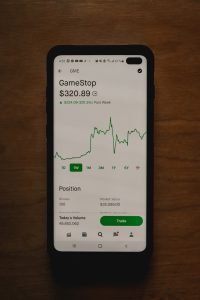In the world of forex trading, one of the key decisions that traders have to make is choosing the right type of forex broker. Two common types of brokers that you will come across are dealing desk (DD) brokers and no dealing desk (NDD) brokers. Understanding the differences between these two types can help you make an informed decision about which one is right for you.
Dealing desk brokers, also known as market makers, have their own in-house dealing desk. When you place a trade with a dealing desk broker, they act as the counterparty to your trade. This means that your broker takes the opposite position to your trade. For example, if you go long on a currency pair, the dealing desk broker will take a short position.
One of the advantages of dealing desk brokers is that they often offer fixed spreads. This means that the spread, which is the difference between the buying and selling price of a currency pair, remains constant regardless of market conditions. Fixed spreads can be beneficial for traders who want to know their costs upfront and have certainty about their trading expenses.
Another advantage of dealing desk brokers is that they can provide liquidity even in illiquid markets. Since they take the opposite position to your trade, they can ensure that there is always someone available to buy or sell a currency pair. This can be particularly useful for traders who want to execute trades quickly and at the desired price.
However, dealing desk brokers have been criticized for potential conflict of interest. As they act as the counterparty to your trades, there is a possibility that they may engage in unethical practices such as manipulating prices or stop-loss orders. While this may not be true for all dealing desk brokers, it is important to choose a reputable broker with a good track record.
On the other hand, no dealing desk brokers do not have an in-house dealing desk. Instead, they connect traders directly to liquidity providers such as banks, financial institutions, and other traders in the market. When you place a trade with a no dealing desk broker, they simply pass your trade onto the liquidity provider with the best available price.
One of the main advantages of no dealing desk brokers is that they often offer variable spreads. Variable spreads can be tighter than fixed spreads, especially during times of high market volatility. This means that you can potentially get better entry and exit prices for your trades, resulting in lower trading costs.
Another advantage of no dealing desk brokers is that they eliminate the conflict of interest that may exist with dealing desk brokers. Since they do not take the opposite position to your trade, there is no incentive for them to manipulate prices or stop-loss orders. This can provide traders with a sense of security and transparency.
However, no dealing desk brokers may have higher trading costs in the form of commission fees. Since they do not make money from the spreads, they rely on commission fees to generate revenue. This means that you may have to pay a fixed amount for each trade you execute, in addition to the variable spreads.
In conclusion, choosing between a dealing desk broker and a no dealing desk broker depends on your trading preferences and priorities. If you prefer fixed spreads, guaranteed liquidity, and are comfortable with the potential conflict of interest, a dealing desk broker may be the right choice for you. On the other hand, if you prefer variable spreads, transparency, and want to eliminate the conflict of interest, a no dealing desk broker may be more suitable. Regardless of your choice, it is important to do thorough research and choose a reputable broker that meets your specific trading needs.





